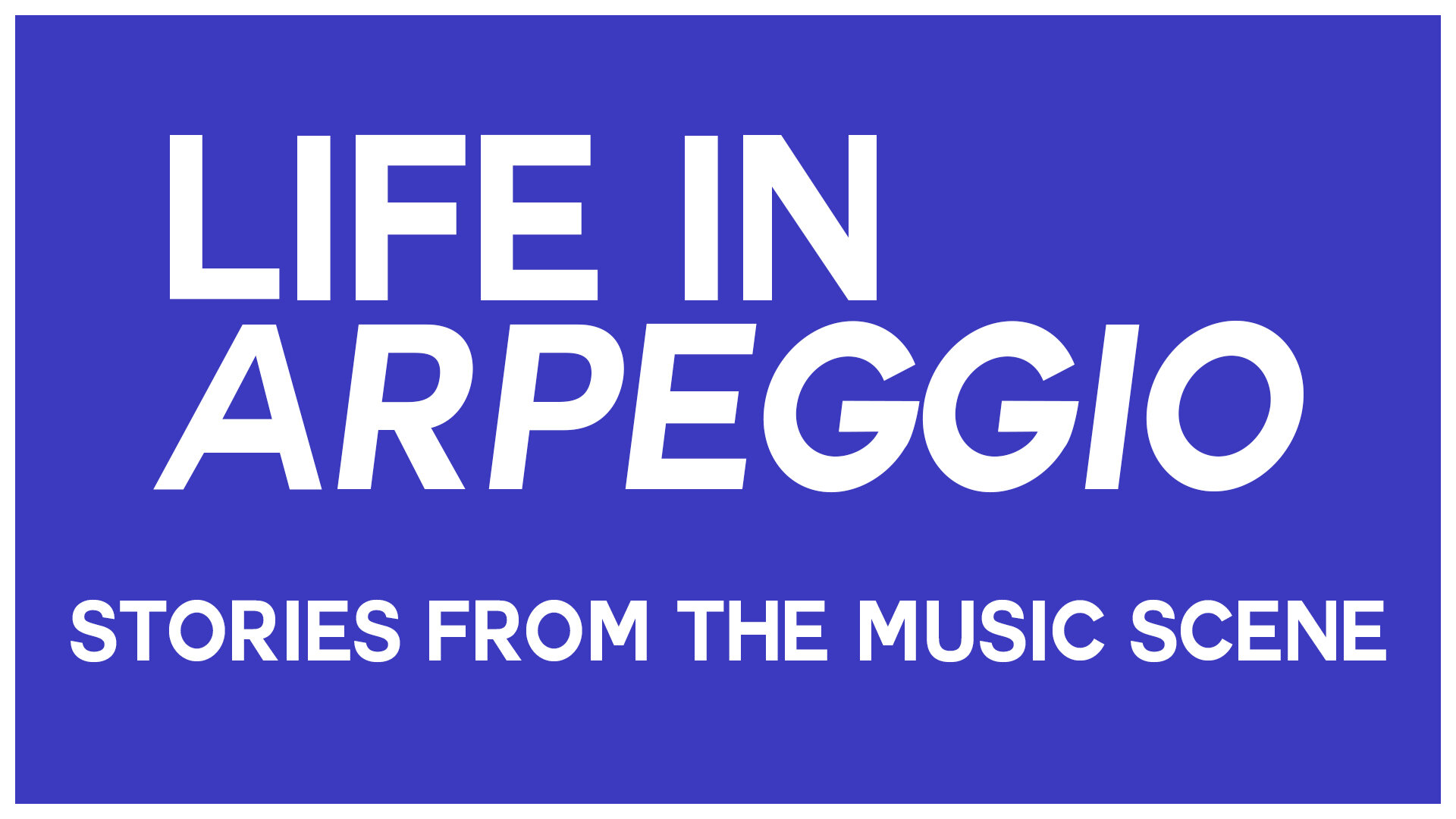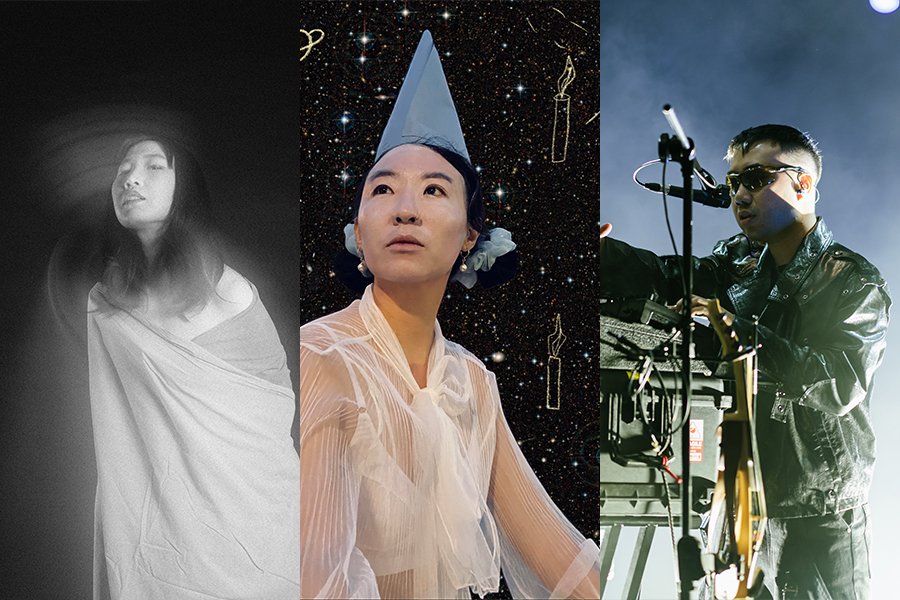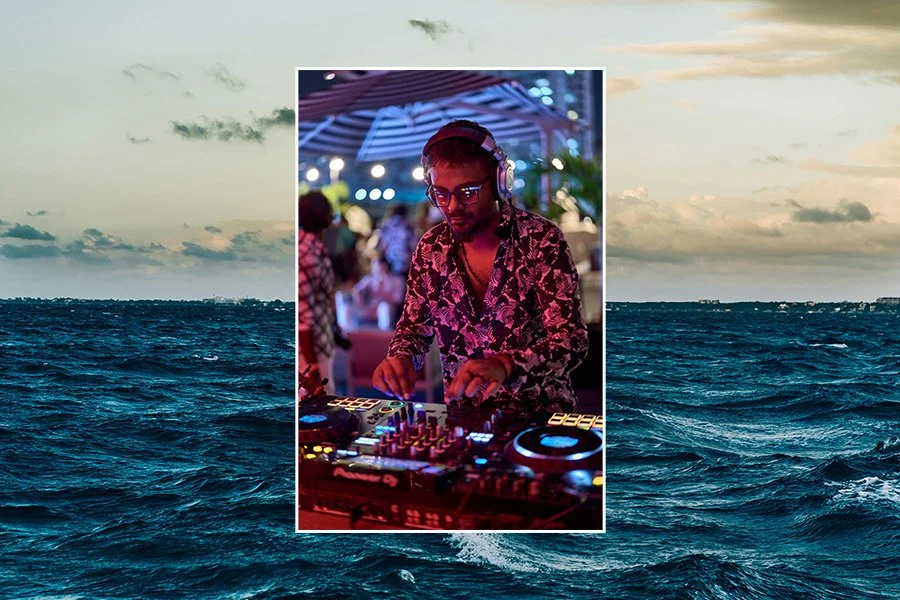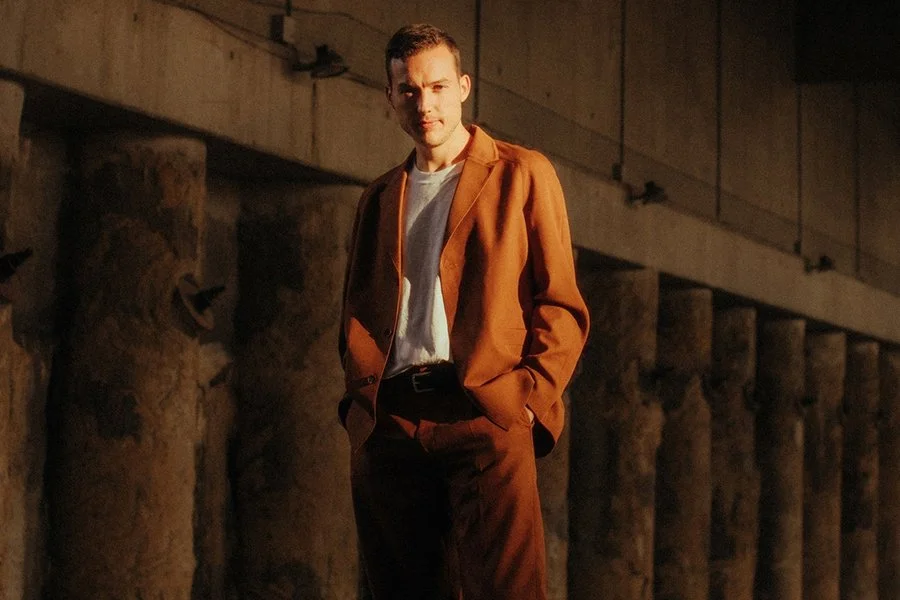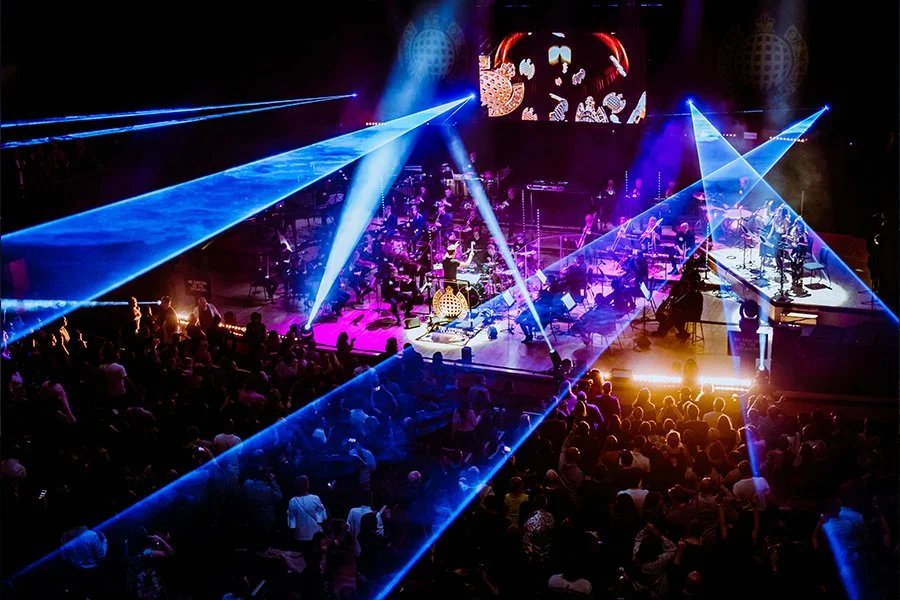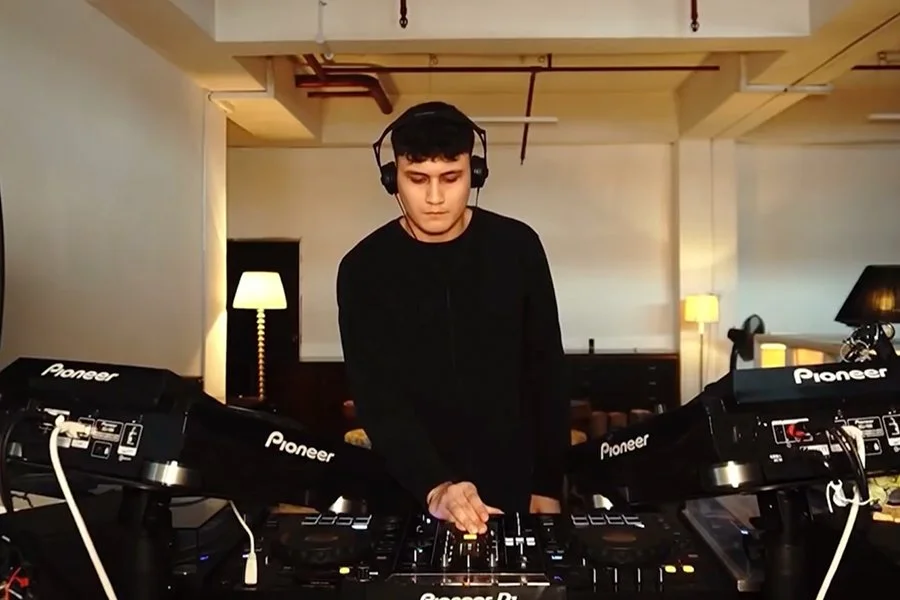The Amazing A/K/A Sounds On Growing Amidst Gender Inequality In The Scene
A/K/A Sounds addresses the pressing topic of gender inequality in this interview (Credit: Racy Lim)
Is there gender equality in the local DJ circuit? The answer is a resounding no. Simply glance at the lineups of most events here and you’ll instantly spot that something is amiss. There is often a huge disparity in the ratio of male to female selectors, an observation that feels out of place in today’s so-called progressive environment. Yet, it’s been a persistent struggle that’s stuck out like a sore thumb for too long. Challenging this valiantly is Amanda Keisha Ang (A/K/A Sounds), and you’d best believe she has something to say about it all.
Amanda is a familiar face behind the decks, with residencies at events like Kampong Boogie (Credit: Basil Tan)
As a DJ, the track record of Amanda is top-notch. An aficionado of bass music, she governs dancefloors while seamlessly switching between jittery footwork and swaggery grime. Yet, you can also find her bouncing across other crowd-pleasing genres like hip-hop and house, making her a solid party-starter at the umpteen events she gets booked for. Her reputation is even etched into the annals of the European scene, with past gigs secured in Antwerp, Berlin and Amsterdam.
Her role in the +65, however, is much more significant, going beyond her scope as an artiste. The scene tips its hat to Amanda as the co-founder of several entities including BAOW BAOW, a bass-centric events promotion crew; and ATTAGIRL!, a collective that’s connected female (and female-identifying) artistes in the bass and beats community across Asia since 2013. Both launched missions that strengthened different segments in the scene, with the latter possessing a more enduring legacy that continues to push for equality.
The wild ATTAGIRL! parties at Blu Jaz Cafe were always ones for the books (Credit: Ungku Ibrahim)
The numerous events of ATTAGIRL! over the years – many will remember their all-female, jam-packed anniversary bashes at Blu Jaz Cafe – have helped create a platform for overlooked, under-represented acts. To further motivate bedroom selectors to step up and get familiar behind the decks, Amanda started conducting a series of open calls, inspiring a potentially new generation of female DJs; shades of the renowned FFF Girl DJ Bootcamp that gave many a firm footing in the late 2000s, Amanda included.
The impact of Amanda’s contributions have been vital for the scene, as it dangles a giant question mark over the circuit’s current, male-dominated state. Amanda chips away at this imbalance with her steely efforts, amplifying the issue that’s never sufficiently addressed. In this feature, Amanda’s taken the time to identify the problems and air her grievances, while referencing her own personal growth as a selector, promoter and leader – AKA someone you should pay attention to.
A daredevil in her field, Amanda is truly influential (Credit: Racy Lim)
Hi Amanda, are there any huge developments for ATTAGIRL! in the pipeline?
Hey! So ATTAGIRL!'s been quiet for a bit, because at some point in the last two years some of us in the collective, myself included, went through some changes in career and studies which meant putting some ideas we had on hold. But that's life, right? And that's also how it is working in a team on a passion project. I'm not so sure if we have the capacity right now for bigger parties like we used to do, but we're still working on community building on a micro level, starting first with sharing skills and creating opportunities for other girls to network.
“I feel that 90% of the lineups I'm looking at all the time are 100% male. If people don't have a problem with that, why should they have a problem with our curation?” (Credit: Justin Tai)
You’re referring to the open calls for aspiring, female-identifying DJs, yeah? How important is it to cultivate and push this new generation of DJs?
We'd been doing this for a few months and the response was really positive. That means we're doing something right. We've always felt it was necessary to create a safe space for others like us who are keen to explore electronic music and the nightlife industry out of the confines of a club. With the open call jams, it allows other bedroom DJs who want a regular space to play out for fun, and where the expectations are also more forgiving for beginners. It's also such a great way to meet other DJs and share music! We started doing introductory DJ workshops for womxn, and so far the classes have always been filled up, which is great. It's important to stress why we need more diversity in lineups, and it pisses me off when men make casual jokes like, "Oh so if the lineup is just girls, I guess that means men aren't welcome."
Look man... I mean, first and foremost, who said men couldn't come? And secondly, I feel that 90% of the lineups I'm looking at all the time are 100% male. If people don't have a problem with that, why should they have a problem with our curation? It would be so silly if I didn't want to go to a gig because "it looks so unwelcoming” or “it's a boy's club". This is the reason why I'm so particular about giving that support to females who need it. This is the reason why we need to keep doing this when we can.
We're living in a time where even a little woman like me can use my love for music and turn it into a career, and I really hope that I can share this skill because it's given me so much to look forward to in life. Because of DJ-ing, I was able to take a break from my full-time job, do more gigs and appreciate more music, spend more time with people I love, travel, and make new friends all over the world. I often feel women have so much more to think about when it comes to attaining work-life balance, and if I can share what I've learnt to achieve that with others who would also like to bring their music interests to another level, why not?
Amanda has been instrumental in inspiring a new generation of female DJs (Credit: Racy Lim)
Is this education process fuelled by your past experience in the FFF Girl DJ Bootcamp?
Yeah, for sure. The FFF Girl DJ Bootcamp was an experience I would never forget, and it was a stepping stone for realising what I really enjoyed and could keep doing for a long time. The spirit of the group was really inspiring, and obviously that was also something we wished to continue sharing with others like us. From the very beginning, whenever we had gigs to curate, we always pushed for fair fees regardless of level – what is important is that the selector has good taste, can do a decent mix and is a professional – which was also how we were treated post-DJ Bootcamp when we all had our first few shows. And whenever we had questions about invoicing, artiste/venue liaison or equipment, there were always mentors there who helped us. We want to pass that kindness on as well.
“I dislike it when people use the term ‘female DJ’ as a noun, which makes me feel really weird to be pigeonholed by people into a specific class or species.” (Credit: Marisse Caine)
There is this debate going around that, if one wants to support gender equality, descriptive terms like “all-female” and “female DJs” should be rendered redundant, and that they should just be addressed like how any other artiste would. What’s your take on this?
Yea... I kind of agree and don't agree. I don't mind being labelled as a female DJ sometimes in a technical way, if that helps with some corporate work. For example, if I was being pitched to an agency to do an event that focuses on beauty products for women, then it's most likely they would use a term like "female DJ" in order to match their brief. Other times, the added gender association seems to soften the stress on other women who want to learn how to DJ or know more about it. I suppose it can feel intimidating, like how if I have medical issues with my body and I might feel more comfortable engaging a female doctor, know what I mean?
Sometimes it helps when we use collective terms like that in order to stress that the cause or party is an inclusive one, and there isn't any tolerance for misogyny on the dancefloor or on the decks, which can be a difficult place to be as a woman in the nightlife scene. Using gender labels need not mean it's entirely exclusive, or anti-opposite gender, and reclaiming it can be powerful and uplifting, like how the young, modern vanguard of LGBTQIA and POCs/minorities are reclaiming their own abbreviations. Females have their own unique experiences, and we can't take this away from them.
However, I dislike it when people use the term "female DJ" as a noun, which makes me feel really weird to be pigeonholed by people into a specific class or species. I once got put in an odd list of "TOP 100 FDJs (Female DJs) in S.E.A", and using FDJ as a term was so strange because no one would ever make a list of Top 100 Male DJs. Or MDJs? Have they ever? I don't know. While it shed light on other female DJs in the scene both commercial and underground, it felt a bit sexist in my opinion. And I think that kind of segregation is what most girls have an issue with because it takes them away from the authenticity of their effort or work. I think it all really depends on context.
“It is myopic to think that just because we are creative, open-minded, post-boomer humans that these patriarchal mindsets don't exist anymore.” (Credit: Racy Lim)
Can you tell us more about gender inequality here from an artiste’s standpoint?
Yeah, absolutely. Till today I still hear horror stories of female artistes (and here as an example, I’m using 'female' to illustrate a specific experience) being talked down by fellow male peers, getting sexually harassed or being subject to misogyny, getting paid less, getting dismissed even though they are experts in their own field, and judged still for their looks and weight. As much as we'd like to think that the art world is more woke than other circles, the truth is that this is still happening on a regular basis even in this day and age. It is myopic to think that just because we are creative, open-minded, post-boomer humans that these patriarchal mindsets don't exist anymore. We're better, for sure, but we can be even better. But it's gonna take a while.
“It's almost a bit insulting for people to think that changing how I look to make money is more important than me enjoying my job.” (Credit: Marisse Caine)
In the industry, you can still find venues and festivals booking scantily-clad, model DJs to boost sales. In your opinion, is this a problem?
I think the world is big enough to have all sorts of entertainment, to cater to all sorts of people. What's important is that whoever is the creator in that equation, feels authentic at the end of the day. I'm not one to comment on how other women should be dressing or performing on stage, and whether the venues or festivals should be booking them. In fact, power to them for that. It's most likely these gigs are also catered to a group that isn't my target audience anyway, and that views music and partying differently as well. So is it a problem to me? No, not at all.
I do think, however, that the popularity of always hiring a certain type of female performer behind the decks does shape an unhealthy mindset of how women should be behaving if they want to be a DJ. I think people nowadays that book me know exactly what they are in for, but I've definitely gotten some enquiries in the past on whether I will subscribe to a "sexy DJ" outlook and play EDM, to which I politely decline. Some guy friends have also asked why I don’t just dress sexy and milk it for what it is? It's almost a bit insulting for people to think that changing how I look to make money is more important than me enjoying my job. I do think that whole model DJ hype is dying down a bit, and audiences are becoming more particular about a quality club experience, which is a good thing.
Amanda won’t take any bullshit on the decks (Credit: Ben Matchap)
How do you deal with misogyny or harassment when you’re on the decks?
Sometimes I feel helpless, because I think as a woman, politeness is so deep-rooted in my system. I've had some experiences where I've been touched inappropriately while playing, cussed at for refusing a song request, threatened for the same reason, and you just get so flustered because you're also trying to do your job and be professional. I think I’m quite sick of that kind of bullshit and rude behaviour, and I'm less afraid of raising my voice. If someone came to harass me, I won't hesitate now to cut the music off and call for help. Unruly partygoers like that deserve to be called out and booed.
Aside from female selectors, Amanda has been pushing the bass community for years (Credit: Racy Lim)
Let’s move on to another baby of yours, BAOW BAOW. It slowly dissipated despite having a string of shows. What happened? And does it reflect anything about the appeal of bass music in Singapore?
We stopped doing shows because the venues we used to do monthly gigs shut or lost their licenses, and it started feeling like a struggle trying to find a space where they could accept heavy, non-commercial music that’s not hip-hop, house or techno. But as for me, I started having priorities that I wanted to focus on deeply, like building my design portfolio and learning new skills. I think most of us just had lives to run and it’s okay if we wanted to take a break.
Bass music in general isn’t so widely received here as other genres, but we do have punters who come with an open mind and that’s what we look out for. I do think promoting such gigs here can be quite stressful especially if the party is at a relatively unknown venue. But it is what it is and we just have to try.
I’ve seen you advocating the footwork movement here, spinning for a small but passionate community of juke dancers. How did you get involved in that?
I really got into footwork around 2014, just a bit before DJ Rashad passed on. I liked his Double Cup release on Hyperdub the year before, but I only really took notice of his musical influence in the Next Life tribute release. After that, I started putting a lot more Chicago footwork-/juke-/footwork-influenced music into my sets, and as I did that I also started making more friends in the footwork community. From the start, people like RP Boo, Jae, Noir and the crew from Juke Bounce Werk, Ashes57 (Teklife), and Anna Morgan (Worst Behaviour Rec) were always so warm and welcoming, and that kind of spurred that interest further. Asian producers like Iyer and Oceantied also put their own local spin on the genre, which made it sound refreshing and close to home in a sense.
I enjoy watching dancers in footwork as well. I think it’s a very essential part of the culture, and the best way to fully absorb the music is to pair it together with dance. When I discovered some practising footworkers here, namely this dancer called Skimy, I got very excited and pushed to play at their dance sessions. A year later, this led to a night that I founded with another DJ, B10n, called Juke It! that used to happen bi-monthly at Choice Cuts Goods + Coffee. We invited dancers and DJs of all levels who also love footwork and juke in an open session to practise and learn. When we can, we will screen some short footwork documentary clips at the same time. The dance community for footwork here is growing also thanks to Skimy, who runs the #SGFOOTWERKERZ group we’re part of. He’s also now a part of Creation Global, an international group of footwork dancers. It’s been pretty amazing!
“Bass music in general isn’t so widely received here as other genres, but we do have punters who come with an open mind and that’s what we look out for.” (Credit: Ben Matchap)
With your love for underground music, does your soul die a little every time you play a corporate gig?
I don’t feel bad about it, no. The clients I often get are lovely, professional, and treat me really well. They normally also have very tasteful choices in music, which also makes it easier for me because I don’t take gigs with a music brief that’s incompatible with my style. Corporate work often pays well too, so in some way it’s nice to be recognised and remunerated fairly for your effort. So far, most of the events I’ve done have been really fun to be honest!
That said, how does someone get booked for corporate gigs in Singapore? Is it more word-of-mouth? Or about having a buffed-up portfolio and a polished persona?
I had the opportunity to do a lot of corporate DJ work because 1) I come from a design/marketing/events/lifestyle retail background, so there are a few connections there to begin with and 2) we also get requests through ATTAGIRL! at times through publicity, so clients know anyone from our DJ roster is a professional. I’ve definitely gotten quite a few recommendations through word-of-mouth as well. I don’t think I have a very polished persona that lends to the work, however I do have a press kit because it’s still a job and that’s your resume – and I just make sure I’m always fresh and so clean.
Keeping it fresh, always (Credit: Justin Tai)
And lastly, with all that you do, you still find time to publish mixes every now and then. How would you describe a mix of yours that’s shaped for a non-club, online context given the recent locked-down circumstances?
I think mixes are like a timestamp of your journey as a selector. Your track choices dictate who you are and what you’re listening to at the time. I think that state of mind forms the foundations of my mixtapes. However, when I get to do a non-club-centric mix, I often love to re-visit classic tracks that bring me back to a time where I didn’t think too much about choosing tracks to play in a club. I look out for experimental or dark sounds, ambient vocals, cinematic stuff, beats… but I usually still love to add some bouncy bits into my mix because that’s my style.
(Credit: Racy Lim)
Follow A/K/A Sounds to stay updated with her various, game-changing activities.
